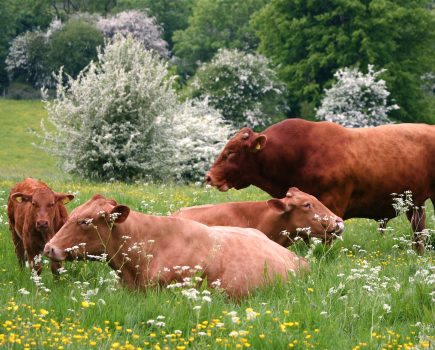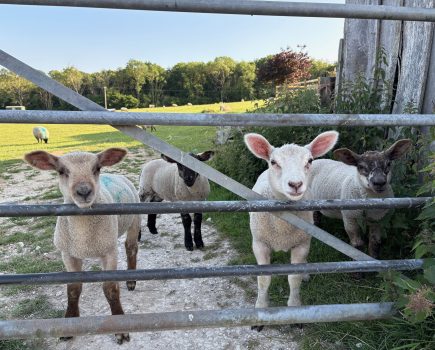DEFRA recently announced its proposed updating of the Government’s farm aid programmes following the almost complete ending of the old EU schemes.
Early reading must have brought some good tidings to farmers who are followers of the likes of Greta Thunberg or Mrs Carrie Johnson, but there was little good cheer for real farmers who make their living by growing real food for real people to eat.
First impression is that the main group to benefit will be employees of DEFRA itself, who have to guide those interested through the lengthy and complex rules by providing, for example, flood plain land that never dries up to ensure survival of water voles and crested newts, along with northern landowners and farmers who have to ensure unburned heather and boggy areas to encourage feeding and nesting sites for all the vermin species the Government seems so determined to encourage to breed and multiply.
There will surely be adverts for many thousands of new, well-paid posts for extra staff to train up as advisers to show farmers how to get a few pounds here and there by planting new hedges or grass mixtures to ensure the newly protected vermin species, such as magpies, are able to live off the eggs and chicks of any songbirds who are tempted to seek a nest site.
The question that occurs more and more to me is where our food is going to come from as more good arable land is put into these fancy schemes or swallowed up for new houses to provide accommodation for the thousands of newcomers arriving by inflatable from France.
I may be guilty to some extent here because we are investigating planting a 20-acre hardwood woodland to safeguard our own little hamlet as protection from the onward march of the coastal development in West Sussex.
I have had 45 separate approaches from companies big and small who seem to think our neighbours, and ourselves, are craving an estate of around 400 new build properties to bring in people who, from local and past experience, have no idea how to behave in rural areas. Areas such as we were but which are fast disappearing from this, and similar, farming areas
Just close to us was an area of local villages, one quite developed but the four still recognisable as villages. It was known as the ‘Five Villages’. Over the past two years, thanks to one particularly wealthy landowner who in recent years has bought up good farmland to sell to developers, these have become more like one sprawling city. Traffic is appalling and there seems to be little new infrastructure. It’s one long, four or five-mile development. Needless to say, the said landowner doesn’t live locally!
Now if you have a sense of irony, a little story with a happy ending about our bank, NatWest. A couple of months ago we received an email, as presumably did many of its business clients, concerning something called My Business Profile, threatening potential account closure.
It looked rather ‘woke’, so my hackles instantly rose, I told them quite nicely that if they expected a response, they should send a letter by post. I copied it to our area manager, since we no longer have local bank managers, and he came back to say: “You have to fill it in” and that it was in fact “a simple thing to do”.
I passed it on to my ‘trouble shooter’ Emma, who herself found it extremely complex but finally managed to get it accepted, my area manager confirmed it had passed muster and the matter was deemed closed.
Since then, I have received some six letters and as many texts (things which I seldom open and never respond to) telling me “there was a problem” and to revisit the website, which I’m not inclined to do. I was even woken at 1.31 am by one of the texts.
The really stupid thing is that one phone call would have sorted the whole thing out in seconds, but there are no return phone numbers or email addresses provided. We have been with the bank since 1968 so there is hardly anything they don’t know about the business.
I imagine many of you may well have been suffering similar experiences. I suggest you bombard your area manager and even the bank’s CEO, perhaps writing to headquarters. A news headline recently reported the bank had been affected by ‘cybercrime’ and I think this is a knock on from that; another reason I am not too inclined to give any online info to anyone these days.
So, to close the story, I sent an email to the CEO and, within one working day, had a personal reply and then her PA on the phone. That is the sort of service we used to get from the bank, service which we could expect by phoning the local branch and speaking to someone we knew. Things seldom change for the better.
After one of the wettest spells I can remember, when just taking a tractor across a field risked getting bogged down, I was astounded in early February by how things were changing, Land which has been under water for some six or eight weeks, thanks to the Environment Agency, within a little over three days drained of almost all the flood water and was practically fit to plough.
It was the most astounding turnaround. One expects land to dry as the days lengthen and the sun gets higher, but it happened weeks earlier than we expected and brought hope of an easier spring than last year. At least the soil has had a good soaking and water tables are high, so warmth and sunshine should provide all the encouragement the new seeds need.







